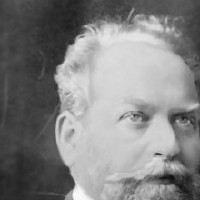At one of the several crucial moments of the narrative, Jesus tells his followers that they have to give everything up. Whoever will save his life will lose it, he says. Whoever will lose his life for me will find it. If you’re going to be a Jesusite, he insists, deny your self.
Conventionally, we read this as an injunction to serve each other so earnestly and with such commitment that we lose track of our own interests, our selfishness gives way and sloughs off, and the happiness and well-being of others become our identities. I don’t object to the conventional reading. It seems certain that Jesus advocated this type of transformation. But it does seem that the conventional reading helps us to secure and to protect all sorts of excuses for mistreating each other. We can go on loving the sinner but hating the sin, for instance. We can help people we insist on impoverishing. We can give our time and talents to imposing misery on our fellows for the sake of doctrine.
As he did in so many other cases, perhaps Jesus was speaking even more radically than conventional reading admits. Maybe Jesus was a phenomenologist.
The early twentieth-century philosopher Edmund Husserl proposed a kind of philosophy that would finally solve the epistemological problem that we don’t really know anything, by getting to the “thingness” of things. Phenomenology was to produce something we can call knowledge, without any equivocation. Never mind whether or not he succeeded in capturing the goose that western thought has been chasing since, at least, Socrates. On the way, Husserl argued that each is alone.
At least where knowing is concerned, each person is an island. No one really knows anything on the basis of someone else’s say-so—not even on the say-so of science. The grand, impossible method that Husserl proposed insisted that each individual person would have to start over, from scratch, in the project of knowing, and starting over includes giving up what one thinks one knows about one’s self.
The phenomenological reduction of the self involves facing everything about oneself that is conventional, and it expects ruthless, remorseless honesty in the confession of one’s conventional constituents. That honesty is likely to strip a person of everything as he or she discovers that everything personal is inherited, or conceptual, or intended, rather than essential. From nothing, then, the only sure foundation, one can begin to build one’s self anew, and also build anew a relation to the cosmos, as a thing of its own thingness, rather than something existing for one’s private objectives.
You think you know your self? Husserl asked. If you lose your self, you might be able to find it.
Which brings us back around to Jesus’s most radical insinuation. In the quest to be Jesus-y, it seems, we must be willing to surrender everything, especially the expectations that our selves have for the world. The Jesus-y reduction would give up all that our selves impose on the world, so that the world can appear to us, instead, as it is. Without that reduction, we find ourselves loving ephemera, the phantasms of our own trivial aims, and not existence, and all its elements, as Jesus seems to have done.
So, the fearsome charge of lose life for my sake. Could it be that losing one’s self for Jesus’ sake necessarily involves the abandonment of all with which we obscure the world’s manifestation of itself: the dogma, the doctrine, the policies, the practice, the genuflected principles by which we squeeze the world into shape, all the institutional hoo-hah that clouds our being in creation?
Could it be that losing life for Jesus means sacrificing church?
The pathway to Jesus requires such a radical reduction of the self that even church must be crucified, in the hope that has no sure guarantee that a new thing—potentially perfect—can be made. While we let a religion tell us what constitutes truth, we have no knowledge. While we cling to a religion as the force that secures our place in the world, we are simply, desperately, saving our lives. We’ll go to prison for a few days, rather than lose our lives, and Jesus can go hang.
One of Joseph Smith’s more profound moments produced the following declaration: a religion that does not require the sacrifice of all things never has power sufficient to produce the faith necessary unto life and salvation. I like the claim that faith is at odds with things, and I don’t see how we can avoid the great, glittering irony, here, that because church and doctrine are things, we must abandon them, too, on the way to a genuinely saving faith.
We can go on in what Husserl called the “natural attitude”, keeping on a shelf the suspicion that in our mortal condition we see only darkly, so that we can go on behaving badly in a world we have made to accommodate bad behavior. But Jesus wasn’t fond of the “natural person”.* If we face it, Jesus’s most demanding demand charges us to consider that religion cannot be fully realized until we have given up religion itself.
____________________
*At least, Paul wasn’t fond of it, for Christ’s sake.
** Image of Edmund Husserl from Wikimedia Commons.












